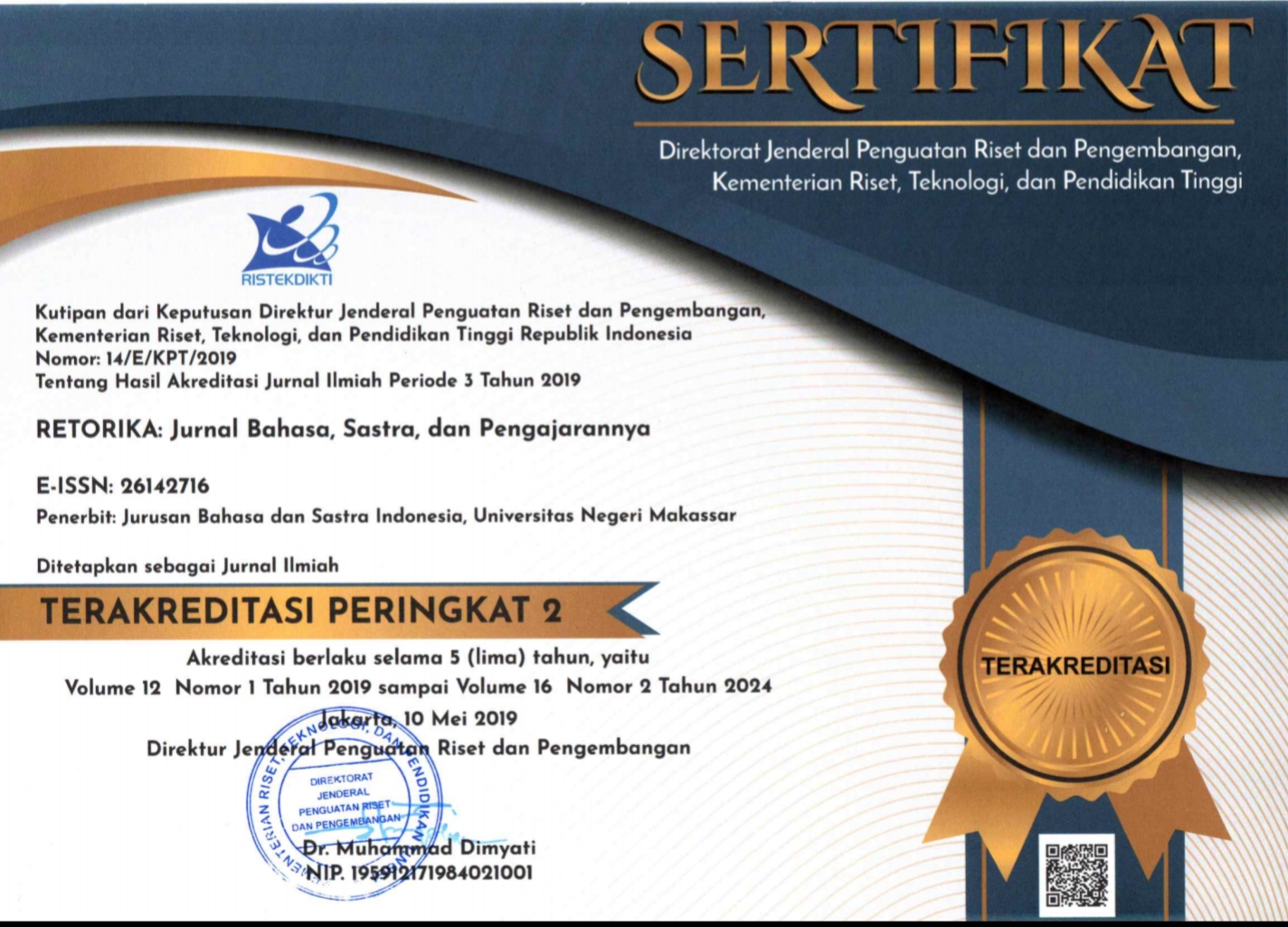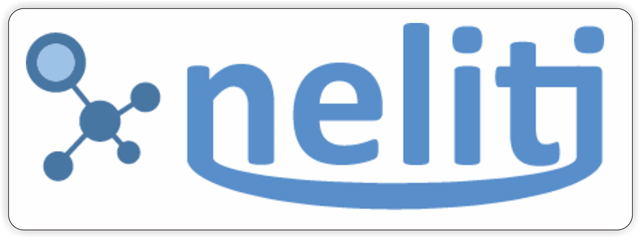METACOGNITIVE ASPECTS IN INDONESIAN LEARNING IN SENIOR HIGH SCHOOLS IN JEMBER
(1) Universitas Sebelas Maret Surakarta
(2)
(3)
(*) Corresponding Author
DOI: https://doi.org/10.26858/retorika.v14i1.16491
Abstract
Metacognition is important in learning since it is a higher order thinking process. Metacognition emphasizes on the students’ autonomy to determine the learning process which is right for them. This research was conducted on tenth grade class students in Jember. Research on three students was collected through interviews and observations. The research result was obtained in three parts, procedural, declarative, and conditional knowledge in each variable. The variables consist of self, task, and strategy. The results showed that the three metacognitive knowledge were closely related to the student learning process. The highest level in the learning process is procedural knowledge, then declarative and conditional knowledge.
Keywords
Full Text:
PDFReferences
Aisyi, A. N., Muti’ah, A., & Pornomo, B. E. (2018). Bahan Ajar Menulis Teks Prosedur Berbasis Kitab Safinatun Najah di Lingkungan Pesantren. Retorika: Jurnal Bahasa, Sastra, dan Pengajarannya, 11(2), 108-118.
Baker, L., & Brown, A. L. (1984). Metacognitive skills and reading. Handbook of reading research, 1(353). Newyork: Longman.
Bransford, John., Brown., & Cocking. (2000). How People Learn: Brain, Main, Experience, and School. National Research Council (US): Commite on Development in the Science of Learning.
Brynes, J. P. (2001). Cognitive Development and Learning in Instructional Contexts (2nd ed.). Needham Heights, MA: Allyn and Bacon.
Christoph, L. H. (2006). The role of metacognitive skills in learning to solve problems. SIKS.
Devika, & Singh, Rajni. (2019). Influence of Metacognitive Awareness on Engineering Students’ Performance: a Study of Listening Skills. Procedia Manufacturing. 31: 136-141.
Dunlosky, J. (1998). Epilogue: Linking metacognitive theory to education. In D. Hacker, J. Dunlosky. & A. Graesser (Eds), Metacognition in Educational Theory and Practice (pp. 367-381) Mahwah, NK: Lawrence Erlbaum.
Flavell, J. H. (1979) Metacognition and Cognitive Monitoring: A new area of cognitive development inquiry. American Psychologist, 34 (10): 906-911.
Flavell, J. H., Miller, P. H., & Miller, S.A. (1993). Cognitive Development. New Jersey: Englewood Cliffs.
Flavell, J.H. (1981). Cognitive Monitoring. In W. Dickson (Ed.), Children’s oral Communication Skills. New York: Academic Press.
Gurbin, T. (2015). Metacognition and technology adoption: exploring influences. Procedia-Social and Behavioral Sciences, 191, 1576-1582.
Krathwohl, D. R., & Anderson, L. W. (2009). A taxonomy for learning, teaching, and assessing: A revision of Bloom's taxonomy of educational objectives. Longman.
Mansyur, U. (2016). Inovasi Pembelajaran Bahasa Indonesia melalui Pendekatan Proses. RETORIKA: Jurnal Bahasa, Sastra, dan Pengajarannya, 9(2).
Mohamed, Ahmed H.H. (2012). The Relationship Between Metacognition and Self-regulation in Young Children. Procedia-Social and Behavioral Sciences, 69, 477-486.
Pilten, P., & Yener, D. (2010). Evaluation of metacognitive knowledge
of 5th grade primary school students related to non-routine mathematical problems. Procedia-Social and Behavioral Sciences, 2(2), 1332-1337.
Schraw, G. & D. Moshman. (1995). Metacognitive Theories. Educational Psychology Review, Volume: 7, Pages: 351-371.
Schunk, D. H. (2012). Learning theories: an educational perspective 6th ed. Terjemahan Hamdiah & Rahmat Fajar). Yogyakarta: Pustaka Pelajar.
Suwandi, S., & Yunus, A. (2016). Kecerdasan Ekologis Dalam Buku Sekolah Elektronik Mata Pelajaran Bahasa Indonesia SMP. LITERA, 15(1).
Zhao, Zhanqiang. (2015). Mainland Chinese Students’ Metacognition, Including their Conception of Learning: A Phenomenographic Study in Hebei and Shandong Provinces. University of Alberta: Department of Secondary Education.
Xu, W., Carifio, J., & Dagostino, L. (2012). Constructing a Metacognitive Knowledge Framework for Post-Secondary EFL Reading Teachers’ Summarizing Strategies Instruction with Expository Text: A Case Study, Phase I. Creative Education, 3(06), 829.
Article Metrics
Abstract view : 610 times | PDF view : 142 timesRefbacks
- There are currently no refbacks.
Copyright (c) 2021 Alivia Nadatul Aisyi

This work is licensed under a Creative Commons Attribution-NonCommercial 4.0 International License.
Published by:
Department of Indonesian Language, Faculty of Languages and Literature, Universitas Negeri Makassar in cooperate with Asosiasi Dosen Bahasa dan Sastra Indonesia (ADOBSI) and Ikatan Program Studi Pendidikan Bahasa dan Sastra Indonesia (IKAPROBSI).
Address: Department of Indonesian Language Office, DG Building Second Floor, UNM Parangtambung, Daeng Tata Raya Street, Makassar, South Sulawesi, Indonesia
 Email: retorika@unm.ac.id
Email: retorika@unm.ac.id

RETORIKA: Jurnal Bahasa, Sastra,dan Pengajarannya is licensed under a Creative Commons Attribution-NonCommercial 4.0 International License.
















